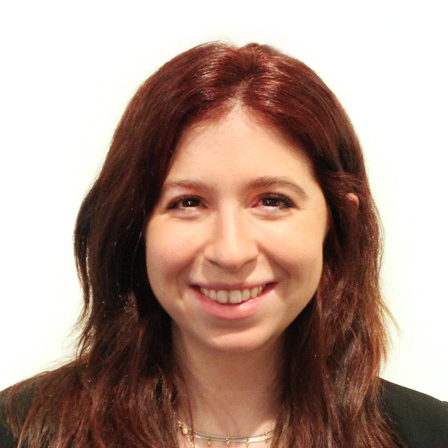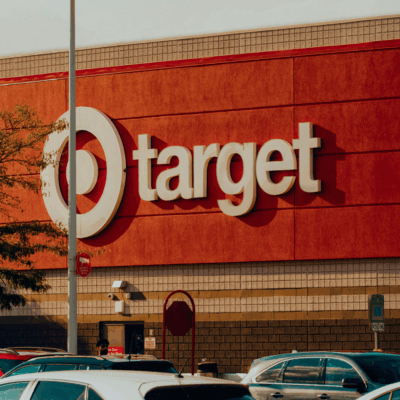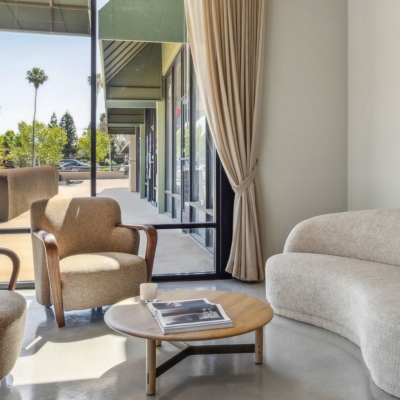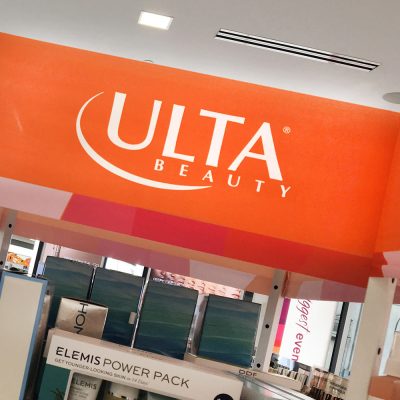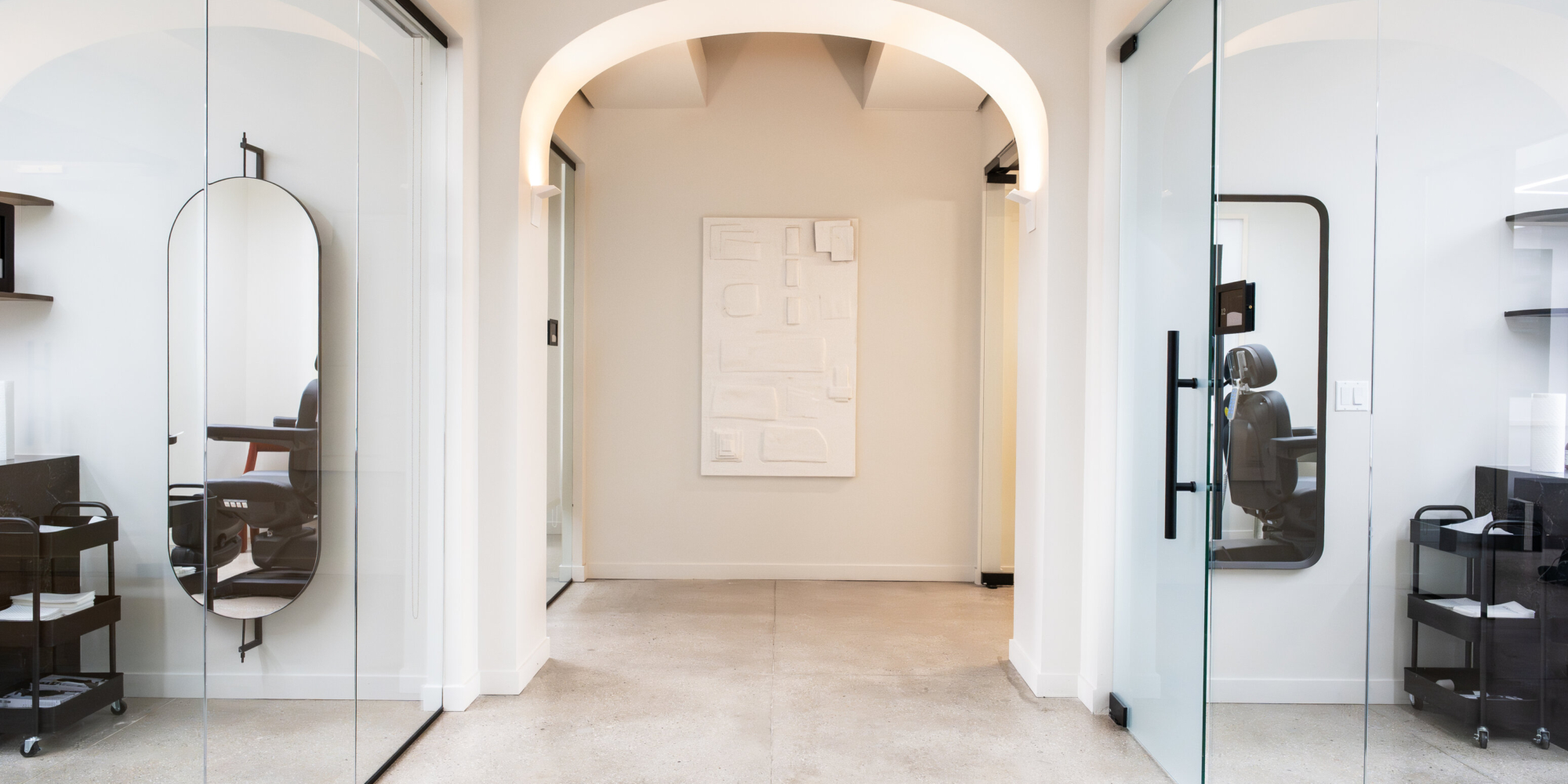
This NYC Aesthetics Destination Is Making Its Injectors Owners And Reaping The Rewards
With med-spas facing a labor crunch, Velour Medical is recruiting top talent by providing ownership to its injectors.
Operating a 12,000-square-foot treatment studio in New York City’s NoMad neighborhood, it employs 10 injectors who set their own pricing and have equity stakes in the business along with benefit packages, including 401(k) retirement savings plans and health insurance. According to Michael Kennis, founder and injector at Velour, the company’s employee retention rate is 100%, a rarity in an industry marked by considerable employee turnover due to burnout, lackluster compensation packages and competition. Velour uses a “paid on collections” structure, a common compensation structure in healthcare, where injectors receive a percentage of the total money collected for the services they conduct.
“Big pharmaceutical brands like Allergan and Galderma, they’re taking a lot of interest in us because they see that this is going to be the way of the future,” says Kennis. “A lot of nurses and nurse practitioners are marginalized to some extent. This really allows them to see their true value.”
Zach Goldstein, president and COO of Velour, compares Velour’s model to real estate brokerage firm Compass where agents run their own micro-brands under the broader company umbrella. Velour supplies injectors with branding and marketing support and consultation services. Goldstein notes that several of Velour’s injectors came to the business after experiencing burnout from running their own practices.
So far, Velour’s employee-focused model is yielding positive results. It’s been registering high double-digit sales growth over the past two years. This year, it’s projecting sales to increase approximately 112%. Velour, which refrains from calling itself a med-spa, focuses on aesthetic injectables like Botox, hyaluronic acid fillers and platelet-rich plasma (PRP) treatments as well as medical-grade chemical peels. GLP-1 weight loss treatments have exploded in popularity at med-spas across the country, but aren’t available at Velour. Velour’s services are performed by registered nurses, nurse practitioners or physicians’ assistants.
Goldstein says, “A lot of these med-spas do everything under the sun, and it takes away from their credibility just because they’re trying to capitalize on a trend.”
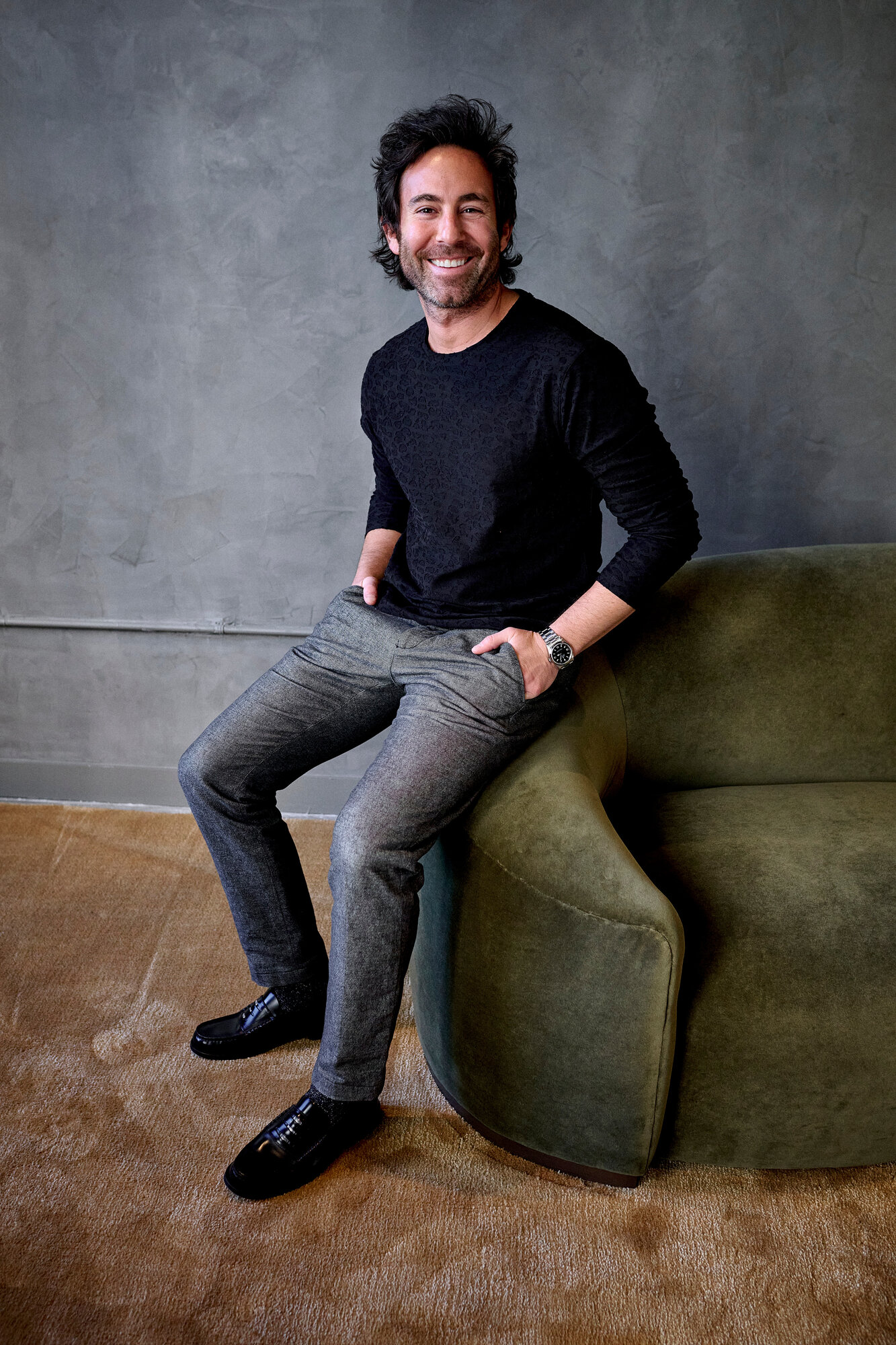
Previously a board-certified physician at the New York urgent care provider CityMD, Kennis segued into aesthetics before the pandemic hit. In 2020, he launched Velour out of his apartment as a concierge aesthetics service and became what he refers to as “the Botox party king” for high-net-worth customers who craved their neurotoxin fix while they were stuck at home. At the time, Velour was performing COVID-19 testing.
Velour opened its first space with six suites in 2022 before landing in its present location late last year. Its new studio contains 14 treatment rooms, with one allocated for training and VIP clients. Fostering a lifestyle center vibe, it features a 3,000-square-foot client lounge with a coffee and tea bar and work spaces for clients. Injectors can take breaks between appointments in a 2,500-square-foot lounge that’s situated in the back of the space.
Other med-spas have reported filler fatigue among customers, but filler is very much in demand with Velour’s client base. Over the past year, about 36% of the med-spa’s appointments were for filler. Clients typically return one to two times a year for filler. Clients for Botox injections return between three to four times a year. However, Kennis notes that fear of filler done wrong is rising, and he’s pushing clients to explore injectable biostimulators like Sculptra and regenerative treatments like PRP and platelet-rich fibrin (PRF).
The average ticket price at Velour is around $600. Each unit of Botox clocks in at between $15 and $16. A full face of Botox and dermal filler is priced at about $4,000. Goldstein says that gen Z customers seeking quick, non-invasive services like lip flips generally spend about $250 a visit. About half of Velour’s injectors offer concierge services to high-income customers. Botox parties account for a sizable portion of Velour’s business. Kennis says, “They’re a really unique and organic way to capture people and get them excited.”
Although venture capital dollars have been pouring into the med-spa space, Velour hasn’t taken on outside investment to date. Funds from corporate COVID testing for companies like L Brands, HBO and IMG Models helped scale the company to its first location, and it opened a line of credit in its early days. Organic growth has taken care of the rest. Velour declined to disclose the sizes of its injectors’ ownership stakes.
Goldstein says, “We’re pretty scrappy and every dollar that comes in goes right back out into the business.”
According to the American Med Spa Association, the value of the U.S. med-spa industry has surpassed $17 billion and is growing by about $1 billion every year. The number of med-spas in the United States is expected to hit around 11,550 this year.
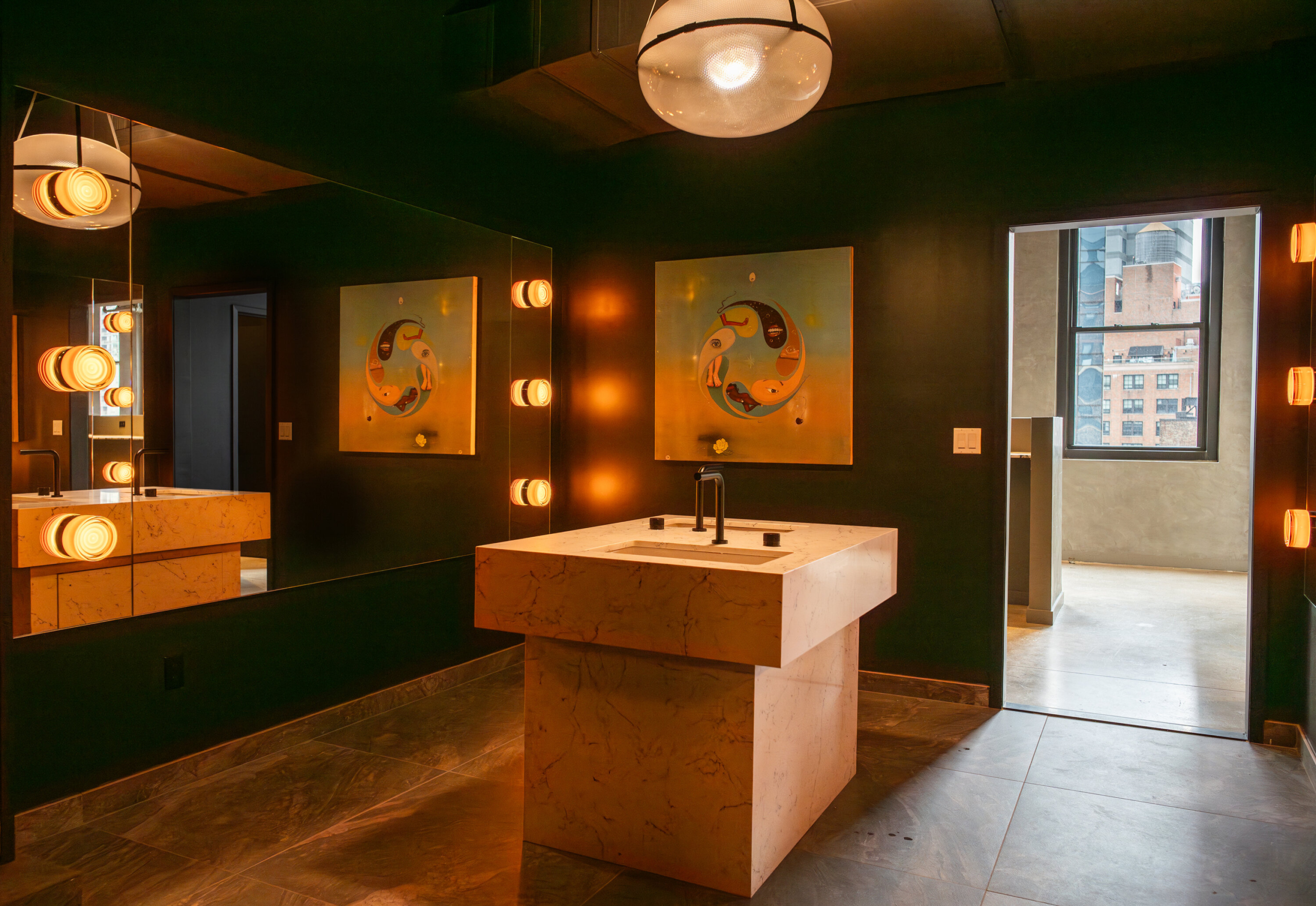
For Kennis, it’s a momentous period for aesthetics as the stigma surrounding treatments fades and the competition heats up as more operators establish practices. He argues that the industry’s expansion will lead to higher levels of standardization, pointing to Botox manufacturer Allergan’s announcement in February that it would open three new training institutes in the U.S. Approvals from the Food and Drug Administration on trendy treatments such as temple filler and neck Botox are broadening the possibilities of med-spas’ service menus.
Challenges are mounting, too, as operators without medical training rush into the industry and undercut pricing. “They’re not establishing loyalty, and they’re not able to have the patient see the same injector every time, which is important,” says Kennis. Goldstein bluntly predicts, “They’ll kind of blow up, they’ll get sued, they’ll come down. The people that’ll stay stable will be people that are backed by medicine, whether they have money or not. It’s about building lifetime value. If you are charging less than $12 a unit for Botox, your margins are next to nothing.”
Looking to the future, Velour is hoping to spread its concept to key markets around the country, notably West Palm Beach and San Francisco, but is in no hurry. “Rapid expansion kills a business,” says Goldstein. “The right thing for us to do is to continue to be the best where we are in our current location, make sure our founding injectors are happy and that our systems are robust before we territorially expand.”
